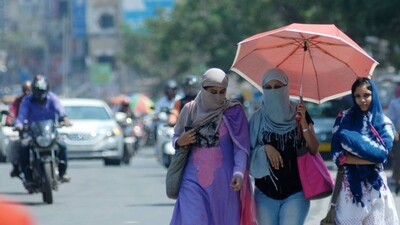Recommended Stories
"The main objective of the Summit has been high-level attention on the global threat posed by nuclear terrorism and the measures that are required to prevent terrorists and other non-state actors from gaining access to sensitive nuclear materials and technologies," Foreign Secretary Ranjan Mathai told reporters here. The NSS is intended to take stock of the progress in implementing the Communique and Work Plan of the first Summit held in Washington in 2010 "as well as agree on new measures that would be reflected in the Summit Communique", Mathai said.
"A number of countries are expected to speak on steps taken to strengthen nuclear security after the Washington Summit in the form of national progress reports. These will be made public during the Summit," he said. Mathai said India was "committed" to the success of the Summit and the Prime Minister`s participation in the Seoul summit, as also the Washington summit, was a "demonstration of our high-level commitment". Ahead of the summit, Singh will be on a two-day official visit to South Korea to strengthen the strategic relationship with the Asian economic partner.
This will be the second official visit by an Indian Prime Minister to South Korea after the visit of P V Narasimha Rao in 1993. Singh will hold talks with President Lee Myung-bak and the two countries will sign an agreement on simplifying issuance of visas, Mathai said adding that the leaders would also issue a joint statement. Singh is also scheduled to interact with leading CEOs of South Korean corporations on Monday morning.
"India and South Korea have a strategic partnership since 2010. The architecture of bilateral political discussions is well established," Mathai noted. "Our economic relationship anchors our strong ties. Bilateral trade has picked up considerably since the Comprehensive Economic Partnership Agreement (CEPA) between the two countries came into effect in January 2010."
In the last two years, bilateral trade has grown 65 per cent to reach USD 20.5 billion last year. The two countries have targeted USD 30 billion by 2014, "which is achievable", Mathai said. Over 300 South Korean companies are present in India, with an investment of USD 2.3 billion. Indian investment in South Korea is also substantial with Tata Motors and the Mahindra Group having made important strategic investments there.












